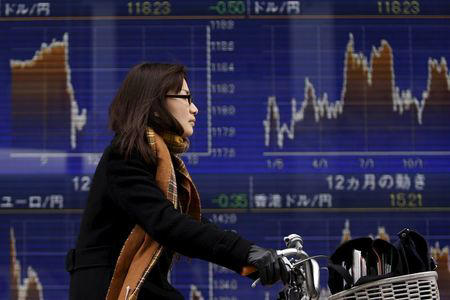On Wednesday, most Asian stock markets experienced declines, driven by disappointing earnings reports from major U.S. technology companies and ongoing uncertainties about China’s economic trajectory. This negative sentiment in regional markets follows a lackluster performance on Wall Street, where key stock index futures fell sharply after weak earnings results from tech giants such as Tesla Inc. and Alphabet Inc.
Impact of U.S. Tech Earnings on Asian Markets
In the wake of underwhelming earnings reports from Tesla and Alphabet, technology stocks globally, including those in Asia, faced considerable selling pressure. Tesla, known for its leadership in the electric vehicle sector, saw its shares drop nearly 8% following its second-quarter earnings report, which revealed softer-than-expected sales and increasing expenses related to its push into artificial intelligence and autonomous driving technologies. This decline in Tesla’s stock had a ripple effect on Asian markets, particularly in the electric vehicle sector.
In Hong Kong, where major EV stocks like BYD Co. Ltd., Li Auto Inc., and Xpeng Inc. are prominent, these shares fell between 2% and 4.3% as investors reacted to Tesla’s poor performance. The Hang Seng index itself fell by 0.6%, becoming one of the day’s worst performers as tech sector declines weighed heavily on its overall performance.
Similarly, Japan’s Nikkei 225 index dropped 0.5%, and South Korea’s KOSPI index shed 0.1%, with both indexes burdened by losses in technology stocks. The broader trend of profit-taking and a shift towards more economically sensitive sectors have been significant in impacting global tech valuations. Over the past year, technology stocks have faced steep losses, partly due to a market rotation away from growth stocks and into more cyclically sensitive sectors.
China’s Economic Woes and Market Reaction
Chinese stock markets also faced declines, with the Shanghai Shenzhen CSI 300 and the Shanghai Composite indexes falling by 0.8% and 0.6%, respectively, marking their lowest levels in over two weeks. The downturn followed disappointing economic data, including second-quarter growth figures that missed expectations. This economic disappointment was compounded by an underwhelming interest rate cut by the People’s Bank of China (PBOC) and a lack of substantial stimulus measures from the recent Third Plenary session of the Chinese Communist Party.
Investor sentiment towards China remains bleak amid these economic concerns. The limited effect of the PBOC’s rate cut and the absence of aggressive fiscal stimulus measures have led to fears about the pace and sustainability of China’s economic recovery. Additionally, political uncertainty surrounding the U.S. presidential election has further weighed on sentiment. Investors are speculating about potential shifts in U.S. policy and their implications for U.S.-China relations, adding to the broader market anxiety.
Broader Regional Trends
In broader Asia, market movements were mixed. Australia’s ASX 200 index saw a slight decline, influenced by purchasing managers’ index (PMI) data that indicated a likely slowdown in both manufacturing and services sectors for July. This data suggests that economic activity in Australia may be cooling, contributing to the overall cautious market sentiment.
Japan’s TOPIX index fell by 0.4%, although losses were moderated by some positive signs in the Japanese economy. Despite a contraction in manufacturing activity, the services sector showed a sharp rebound into expansion in July, buoying overall business activity and providing some support for the market.
In India, futures for the Nifty 50 index declined by 0.1%, reflecting investor concerns over the government’s 2024 budget, which proposed increased capital gains taxes. While the budget aims to address fiscal deficit concerns and control government spending, which are seen as positive steps, the market reacted cautiously to the proposed tax changes.
Outlook
Overall, Asian markets are navigating a challenging environment marked by mixed signals from global earnings reports, economic data, and geopolitical uncertainties. The ongoing concerns about China’s economic recovery and the potential impact of U.S. political developments continue to weigh on market sentiment, contributing to the broader declines observed in the region. As investors await further economic indicators and policy updates, market volatility is likely to persist.
